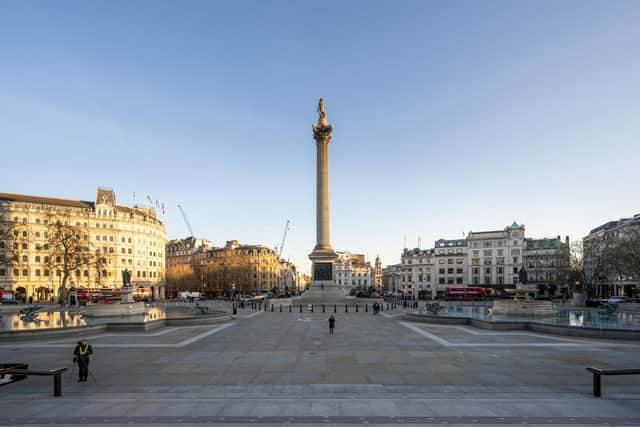When did UK lockdown start? Date coronavirus restrictions were enforced - and if government should have acted sooner
and live on Freeview channel 276
Staying indoors has become the norm in the UK, with the country adapting to life in lockdown due to the coronavirus outbreak.
However, restrictions are now gradually starting to lift across the UK, with the devolved government’s outlining plans for the next phase of handling the virus.
But how long has lockdown been in place?


When did lockdown start?
Advertisement
Hide AdAdvertisement
Hide AdThe UK government imposed the lockdown on the evening of 23 March.
The restrictions were initially put in place for a period of three weeks, until 13 April, but were later extended for another 21-day period.
On 10 May, Prime Minister Boris Johnson set out the ‘road map’ for easing lockdown in the UK, as part of a three-phase plan to return the country back to normal life.
Mr Johnson announced a number of changes to the current measures in England, with the UK’s four nations each following their own approach to the next phase of lockdown.
Advertisement
Hide AdAdvertisement
Hide AdIn Scotland, First Minister Nicola Sturgeon announced further changes to lockdown restrictions on 18 June, after the Scottish government held its latest review.
The next lockdown announcement in Wales was held on 19 June, while Northern Ireland revealed the next changes to its five-stage plan on 18 June.
Should UK lockdown have been imposed earlier?
Prof Neil Fergusen, whose advice was crucial to the government’s decision to enter lockdown, has said thousands of deaths in the UK could have been prevented had earlier action been taken.
The professor of mathematical biology at Imperial College London has told the Science and Technology Committee that the death toll could have been halved had it been introduced a week earlier.
Advertisement
Hide AdAdvertisement
Hide AdThe former government adviser said that the outbreak had been doubling in size every three to four days before any measures were taken.
However, he explained that given what was known about the virus at the time in regard to transmission and fatalities, the actions that were taken were warranted.
Prof Ferguson said: "The epidemic was doubling every three to four days before lockdown interventions were introduced. So, had we introduced lockdown measures a week earlier, we would have reduced the final death toll by at least a half.
"So whilst I think the measures, given what we knew about this virus then in terms of its transmission and fatality, were warranted, certainly had we introduced them earlier we would have seen many fewer deaths."
Advertisement
Hide AdAdvertisement
Hide AdThe Imperial College Covid-19 response team called for a full-scale lockdown in a paper on 16 March, seven days before it was implemented in the UK.
When questioned what had gone wrong, Prof Ferguson said that in the first two week of March, there were between 1,500 and 2,000 infectious cases of coronavirus entering the UK from Spain and Italy, which had not been seen in the surveillance data until that point.
As such, it resulted in a “much heavier seeding” than was expected, with experts underestimating how far into the epidemic the UK was at the time.
However, the Health Secretary has since defended the government’s decision to not impose UK lockdown earlier than it did, stating that it “took the right decisions at the right time”.
Matt Hancock denied that any lives had been lost due to not enforcing lockdown sooner, or that any mistakes had been made, stating that all decisions were guided by scientific advice.
